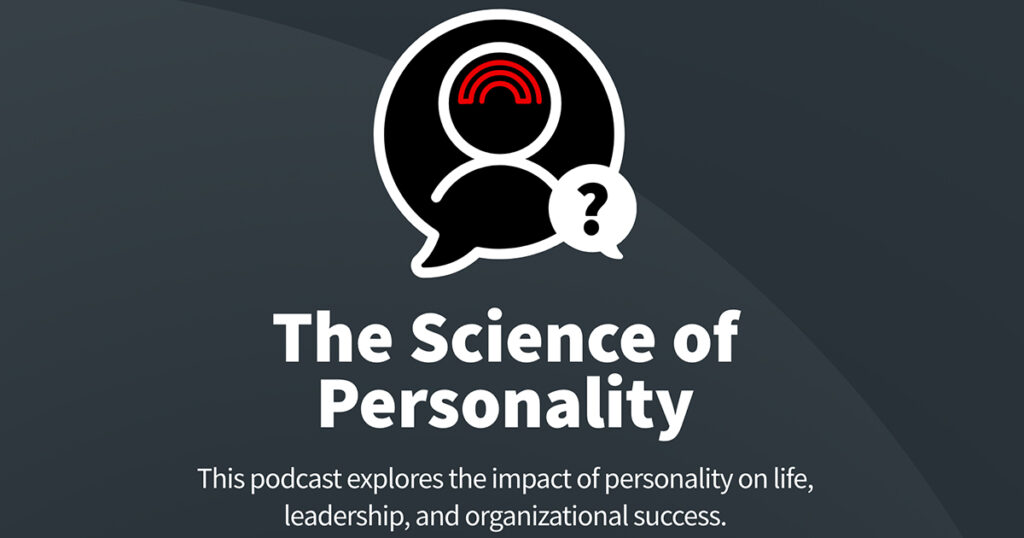
From a personality standpoint, entrepreneurs and organized criminals are not that different. Does that surprise you?
On The Science of Personality, cohosts Ryne Sherman, chief science officer, and Blake Loepp, PR manager, discuss what separates entrepreneur Jeff Bezos from notorious mob boss Al Capone.
Not only have hundreds of entrepreneurs taken the Hogan personality assessments, but about 60 members of organized crime groups have too. Unlike most criminals whose personalities have been studied, the people in the sample group were not incarcerated when they took the assessment, which was administered by one of Hogan’s partners, A&D Resources in Denmark.
Let’s dive into Ryne’s evaluation of how the personality assessment results compare.
Decoding the Assessments
Hogan offers three core personality assessments, the Hogan Personality Inventory (HPI), the Hogan Development Survey (HDS), and the Motives, Values, Preferences Inventory (MVPI) to measure people’s everyday characteristics, characteristics under stress, and drivers and motivators, respectively. We’ll discuss each in turn, then share some analysis and anecdotes about the overlap between entrepreneurs and organized crime members.
MVPI
When we examine the core drivers that motivate both entrepreneurs and organized crime members, both groups are driven to get ahead and maximize profit. “That's the key when we look at entrepreneurship and when we look at criminal behavior,” Ryne observed. “Neither is trying to be innovative. Their goal is to be successful, and in many cases that success is identified by how profitable they are.”
The MVPI sample sets strongly resemble each other. Driven to get ahead, entrepreneurs and organized crime members have high Recognition, high Power, high Hedonism, and low Security, which accords with their desire to compete to succeed and willingness to take risks to accomplish goals.
Where entrepreneurs and organized crime members differ on the MVPI is in Aesthetics and Science. While entrepreneurs tend to value the artistic nature of their work, the use of technology, and decision-making based on data, organized crime members score lower on these two scales. “They’re really, really motivated to succeed and win and to do whatever it takes to get there,” Ryne said.
HPI
The overall shape of the HPI profile, which shows higher scores on Ambition, Inquisitive, and Sociability and lower scores on Prudence, remains about the same for entrepreneurs and organized crime members. This is concurrent with the MVPI results, which show a strong drive to succeed.
Where they differ, however, is that the overall scores are somewhat lower for the organized crime members than for the entrepreneurs. Even Sociability and Inquisitive, which are highest among the organized crime members, are still lower than those of the entrepreneurial sample. “The typical mode of behavior is a little more deflated in terms of the HPI dimensions for the organized crime group versus the entrepreneurs,” Ryne explained.
HDS
Entrepreneurs and organized crime members also look fundamentally the same in HDS terms. “The striking thing is how remarkably similar the profiles are for these two groups,” said Ryne. “They're very high elevations across the board except Diligent and Dutiful, which tend to be around the average range.”
Both show high levels in all these scores: Excitable, Skeptical, Cautious, Reserved, and Leisurely. They also score high in Mischievous, Colorful, Imaginative, and Bold. Like a criminal, the typical entrepreneur is willing to take risks and chances to succeed.
Organized crime members score somewhat lower than entrepreneurs in Colorful, which means they may avoid attention-seeking behavior while engaged in criminal activity. Yet the rule-breaking element is a strong similarity between the two groups, suggesting that both could be comfortable operating in a legally gray area.
The Dark Side of Entrepreneurship
The dark side to being an entrepreneur can be expressed in terms of getting ahead by eliminating competition. Ryne referenced a situation in California in which a community that profited from the recreational marijuana trade worked to secure a vote against a bill to legalize recreational marijuana use because legalization would damage profits.
Many entrepreneurs both past and present would be (or have been) successful in a criminal organization because the criteria for success look very similar: rule-shirking, risk-taking, innovation, and motivation to profit. Likewise, many mafia bosses would make excellent modern entrepreneurs.
Here are a few fictional and nonfictional personas that match this personality profile:
- Al Capone
- Bill Gates
- Elizabeth Holmes
- Elon Musk
- Jeff Bezos
- John Gotti
- Steve Jobs
- Tony Stark (Iron Man)
Society as a body is made up of about 10% of people who are creative, innovative, and motivated by profit. Whether some of them break the rules to succeed comes down to how willing they are to bypass legal roadblocks.
Advice for Entrepreneurs
The entrepreneurial mindset is to run with a great idea and pay it off later. It isn’t helpful to tell an entrepreneur to “just be more careful” because that doesn’t align with their personality and values.
Instead, entrepreneurs need to select an advisor with a profile different from and complementary to theirs whose role is to keep them out of trouble—not to say no all the time but to point out any gray areas that may arise.
“Modern day organized criminals are not that dissimilar from modern day entrepreneurs,” Ryne said. “The similarity there goes unrecognized and underappreciated.”
Listen to this conversation in full on Episode 53 of The Science of Personality Podcast. Never miss an episode by following us anywhere you get podcasts. Cheers, everybody!